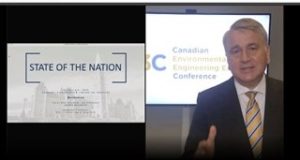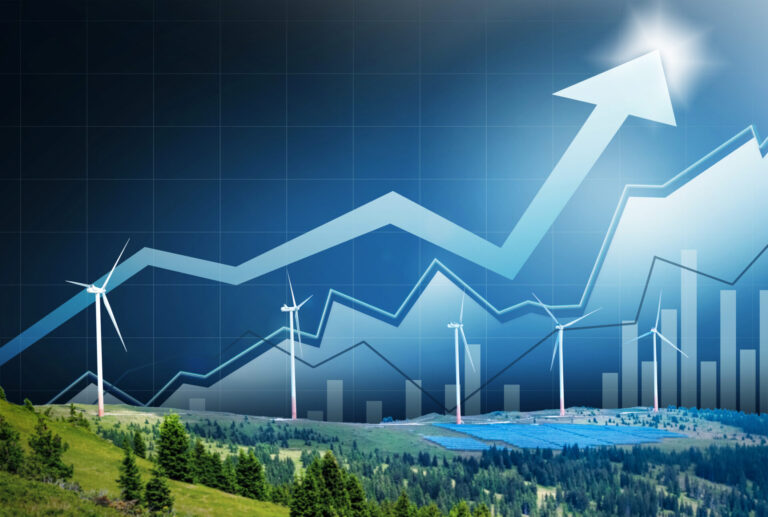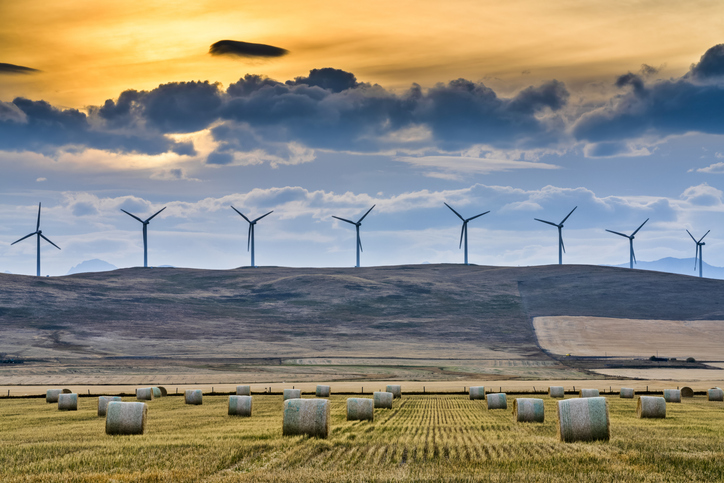Wednesday, July 2, 2025
At this extraordinary moment in time, while Canadians are concerned about the global health crisis and job security, they are also indicating support for a green recovery that is beneficial for both the economy and the environment.
Leading data scientist Nik Nanos of Nanos Research recently shared some exclusive data on impacts from the ongoing COVID-19 pandemic at the virtual Canadian Environmental & Engineering Executives Conference (CE3C) on October 1, 2020.
Nanos leads one of North America’s premier research and strategy organizations and has helped corporations, government agencies and advocacy associations understand, chart, and shape the public mood for decades. His precise algorithms and exceptional insight are more valuable than ever during this period of uncertainty.
In his compelling keynote address, Nanos presented a range of data to expose the pulse of Canadians. He provided a dynamic talk on impacts from the coronavirus crisis and on how the disruption and economic trends are affecting the state of the nation, including the environmental industry.

Nik Nanos presents the “State of the Nation” at the virtual CE3C 2020.
According to Nanos, the data indicates that Canadians are rethinking the role of government and their personal relationships. He said recent survey results are indicative of the “fragility” connected with the ongoing pandemic.
“People are four times more likely to report that their mental health is on the decline,” said Nanos. Canadians are reporting loneliness, a lack of routine and a feeling of unease about the future of the economy.
But it’s not all bad news. One out of every three people has a greater appreciation for family and simpler things that don’t involve consumption. The time in social isolation is also provoking Canadians to rethink what’s important to them and how they want to live.
“That’s an opportunity for companies and employers,” says Nanos. “We’re at a particular point in time where not only are things being disrupted but people are rethinking their values.”
People are changing, the workplace is changing, communities are changing, and values are changing. What are the direct implications of the COVID-19 pandemic on the environment industry?
Nanos is optimistic for the environment industry in Canada. “The future is bright,” he said. “Canadians fundamentally have confidence in technology and technological solutions to overcome our environmental challenges.”
However, he explains that timing is a factor. He says it’s critical to link environmental aspirations to jobs and wealth creation because there’s still a significant proportion of Canadians, albeit a minority (three out of 10), who think this is not the right time to have another disruption such as new environmental initiatives.
“The good news is that 50 per cent of Canadians think that now is the time to be ambitious about the environment,” says Nanos. “It’s one of those things where there’s general agreement in terms of the overall direction.”
Nanos explains that the division exists with regard to the pace of the change. “Think about it this way,” implores Nanos. “If you’re like an average Canadian, you’ve basically been economically, psychologically and socially roughed up because of this pandemic.” Some are a little reluctant to be ambitious about change in new policies, whether it be environmental or otherwise.
He also discussed the latest numbers on lockdowns. He correlates the appetite for lockdowns to the state of the regional economies and that economic issues are still evolving. About 40 per cent of Canadians are “hanging their hats on a vaccine” before they come back to the workplace. He explained that for this reason and others depending on developing news regarding the second wave of the coronavirus there may be a long haul before the economy recovers.
About 40 per cent of Canadians indicate that they are open to deficits and continued spending for stimulus funding as well as Canada Emergency Response Benefit (CERB) payments and enhanced employment insurance. “The stimulus has papered over the pain that will come probably in 2021 as the government tries to keep its fiscal house in order,” warns Nanos.
Politically, the latest Nanos numbers show a dead heat between Prime Minister Justin Trudeau’s Liberal Party of Canada and Erin O’Toole’s Conservative Party. At the height of the pandemic the Liberals had an advantage over the Conservatives. As of October 1, 34 per cent would consider voting for Conservatives and 34 per cent would consider voting for the Liberals, and 17 per cent for Jagmeet Singh and the New Democratic Party. (Shortly after this presentation, on October 3rd, Annamie Paul was elected leader of the Green Party of Canada.)
With regard to new workplace trends in the environment industry, Nanos predicts there’s going to be a hybrid combination of in office and remote workers from home. He says the same about conferences: attendees will participate on location or virtually and calls this “the best of both worlds.”
For further information on CE3C, click here.
Featured image by Carlos Muza @kmuza.











